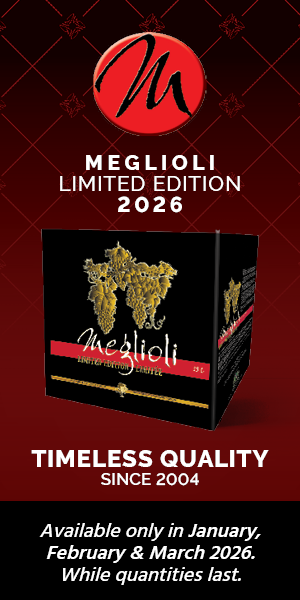What is the film forming inside my bottles?
Q: I am making wine from my own grapes in Alpine, California and have noticed that occasionally a light film forms on the inside of some bottles. I am very meticulous about keeping my winemaking area clean and sanitary. The bottles I use, if new, get a light sulfite rinse prior to bottling. If they are used I scrub them with a bottle brush and one-step cleaner, then I rinse with water and give them a light sulfite rinse. Most of the wines do not have this problem, only a small percentage. Any idea what might be the culprit?
— David Didier • Alpine, California
A: You might be encouraged to know that finding a light film inside some bottles after wines have been aged for a few months is entirely normal, especially if your wine is un-fined or unfiltered. Minimally-handled wine (many homemade wines fall into this category) carries more tiny solids and precipitate precursors like tannins, phenolic compounds and tartrates, which can fall out of solution over time. They can collect in a light dust-like layer at the bottom of bottles or can deposit on the sides of bottles, sometimes appearing in the film that you’ve observed.
Additionally, wines that aren’t racked very often or that are bottled early will have higher amounts of these compounds, making them especially susceptible to precipitates. Sometimes entire batches will throw a sediment and sometimes, like you, I’ve seen this happen in only a few bottles out of the same lot. One cause I’ve been able to find in my own practice is that the last bottles corked tend to throw the most sediment; after much head scratching, I finally figured out that as I racked my unfiltered wine from its carboys into the bottles, the last couple of bottles simply had a little bit more “stuff” in them (because of what gravity brought to the bottom of the carboy).
It sounds like you’re doing all the right things cleaning out your wine bottles before you fill them and are practicing good sanitation. If you’re only having this issue with a few bottles per lot and can live with those few bottles, I wouldn’t change what you’re doing. You could try to make sure that you are treating every bottle the same; sometimes very small things, like some bottles being stored in a slightly colder place can make a difference (colder temperatures cause more solids to fall out of solution, for example). If you’d like to improve a whole batch, you could try to age your wine for a little longer before bottling, or if consistent with your wine style goals, you may want to fine and possibly filter your wine before bottling. That way you give your wine optimal opportunity to drop its solids naturally and to “clean itself up” before you put it in the bottle.

